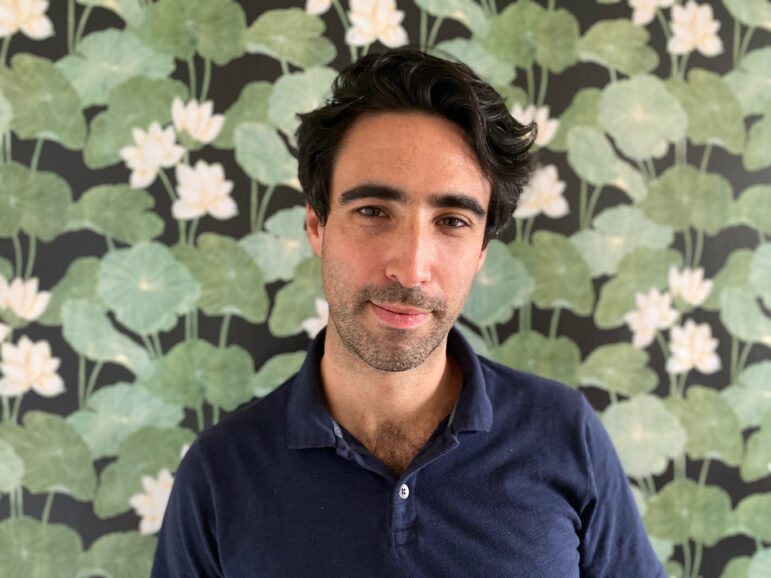Former public media employees describe the burnout and frustration that drove them away

Charnchai / iStock
When Esther Honig left her job in public radio, she didn’t want to give the impression that she was unhappy.
Public radio is a small world, so she was “cautious about burning bridges,” she told Current. When she left KUNC in Greeley, Colo., in 2019 to be a freelance reporter in Mexico, she tried to convey that she was leaving “because I want to do this.”

But in reality, she had become burned out by the work and lack of resources. People in public radio are dedicated to the mission and want to stretch a dollar, she said. But on “understaffed” news teams like those she worked with, “you can just keep going and going and giving and giving,” Honig said. “And rarely is someone going to tell you to put the brakes on it.”
Honig was among more than 300 respondents to an anonymous survey Current fielded in July and August to learn why people leave public media. Like Honig, many respondents cited burnout as a top reason for leaving. Others cited low pay, unhappiness with workplace culture, and a lack of career advancement opportunities.
One former public media employee said in their survey response that they left the system because of “horrible management and burn out from intense and awful news. Many of my colleagues also experienced this burn out and our news director was not receptive to complaints or concerns about burn out.”
We followed up with Honig and other former public media employees who volunteered to speak with us on the record. They detailed why they decided to leave the industry, while station leaders discussed the challenges they’re facing with hiring and retaining staff.
‘I believe in public media,’ but …
Some respondents to our survey said they had moved, started new careers, entered grad school or become stay-at-home parents. About 70% of those who chose to leave the system said that they would consider returning, citing love for the work or a belief in public media’s mission. But even those who said they would return shared concerns about the industry and their previous employers.
“I believe strongly in the mission of public media and would return if I could find a role in an organization that is supportive, respectful and values employees,” one respondent wrote.
In describing bosses and workplace experiences, respondents often used the word “toxic.” “The culture in public media is toxic, exclusionary by default, and the benefits are terrible,” one respondent wrote. “I had truly hoped to spend my career in public media.”
But “too many ‘we meant wells,’” they added. “Too much navel-gazing and back-patting by the incestuous leadership.”
Some shared concerns with how people of color are treated and mishandling of diversity, equity and inclusion initiatives.
“I believe in public media, however, in my two-plus decades of experience in it, I’ve witnessed and experienced the loss of priority to providing otherwise unseen/heard voices, despite trumpeting our DEI commitments,” one respondent wrote.
Others mentioned problems with station leaders and managers. One said their station’s GM was “treating me very poorly, on the verge of abuse.” Another said their manager was “disrespectful, inappropriate and not receptive to feedback.”
Stations struggling with turnover
Like other industries, public media has been struggling with retaining employees in recent years. According to CPB, the workforce of public media stations declined to 18,077 employees in January 2022 from a peak of 19,226 in January 2020 and below even 2016 levels.
Some station leaders also say they’re struggling with hiring compared to previous years. In 2021, hiring in public media was at its lowest point in three years, even though there were more job openings than in 2020, according to CPB data shared with Current.
In public radio, recruiting and retaining staff is something “we’re all grappling with,” said Kerry Swanson, COO at KUOW in Seattle and president of Western States Public Radio. “I think that’s universal across the industry.”
“The staffing levels have not really kept up with where we would like them to be to capture that drumbeat of news.”
Jim Rondeau, KLCC GM
One issue he sees among WSPR members is that many stations are licensed to universities, which can lead to restrictions around hiring that might turn off candidates. For example, some universities are less likely to allow work-from-home policies. Community-licensed stations face fewer limitations but may not offer benefits that compare as well to university-licensed stations, he said.
Staffing challenges can have an outsized impact on smaller stations. Consultant Tim Eby partnered with Current in March 2022 on a survey that found vacancy rates above 10% among nearly half of the 147 public media stations that responded. Nearly a third of small and medium-sized stations reported vacancy rates of 10–19%. For a station with 15 staffers, a 15% vacancy rate is equal to two full-time openings, Eby pointed out.
“Depending on what department those openings are in, the result is that there is some stress being felt at those organizations,” Eby said.
Recruiting for open positions has been especially difficult in recent years, according to Jim Rondeau, GM of KLCC in Eugene, Ore. The station has seen that the “number of people applying for any given job has definitely fallen,” Rondeau said.
KLCC’s news director left in June, and the job remains open. The station posted it for the second time in December. In the first round, KLCC “had some good candidates but not an excellent fit for our particular situation,” Rondeau said. “So we’re looking again. But the overall pool of people interested in doing the job is just reduced right now, for whatever reason.”
Rondeau said he’s especially concerned about journalists leaving the industry in recent years. They’ve “been through many years of burnout, trying to cover stories with relatively small teams,” he said.
That “has led people to explore what other options that they may have,” Rondeau said, and they often find their skills translate to working in other fields.
As a result, stations in small and medium markets like Rondeau’s are stretched to fill coverage gaps left by newspapers that have shut down. “The staffing levels have not really kept up with where we would like them to be to capture that drumbeat of news,” Rondeau said.
“Most people that are drawn to journalism want to go home at the end of the day really feeling like they’ve accomplished something and not feeling like they’re just putting out fires,” he said. “And I think that the workload has led people to just feel like they’re just running from one thing to another without a lot of achievement.”
‘I don’t have to put up with poor conditions’
For Esther Honig, burnout was exacerbated by the limited resources at stations with small news teams. Early in her career, she was just happy to have a reporting job, so she overlooked shortcomings. One office “barely had any heat,” she said, and staffers wore coats left behind by previous reporters.
“That’s the scrappy mentality that I think that you really learn to flow with when you are working in public radio,” she said.
As a reporter, Honig felt that she couldn’t escape “this emphasis on quantity over quality.” She was reminded constantly “that your priority is to turn out as many stories as possible.”
“You’re working at such a maddening pace that there are errors happening, that everything is becoming a little formulaic,” she said. “When you’re working at that speed, you rarely have an opportunity to take a breath and to do something a bit more investigative or even to wait for public records to come through.”
That limited her career growth, she said. As a young journalist, she wanted to get her stories on NPR, work on journalism collaborations and explore other opportunities. “I was mostly discouraged from those opportunities or really just redirected to getting a consistent amount of stories out, which meant doing a lot of things that could be fun but weren’t necessarily career-builders,” she said.
The last straw came after her father died in 2019. A human resources employee said that her station didn’t offer bereavement leave and that she would have to use paid time off. But she later learned that other employees had asked for and received unofficial time off for bereavement.
Honig “just realized I couldn’t stay there,” she said. “I was burnt out, and there was really nothing that I enjoyed about that work anymore at that point. … I just knew I needed to get out.”
Honig began working as a temporary producer for StoryCorps in August. She doesn’t want to return to a station. Since leaving public radio, her “work life has improved tenfold,” she said. “Quitting my job showed me that the world is full of opportunities and that I don’t have to put up with poor conditions simply because I’m afraid of losing my job.”
Working a ‘second full-time job’
Some respondents to our survey said they left public media because they felt unable to advance in their careers. Brian Whitton is among those former employees who felt like they had to move on to find a better fit.
Now a computational journalist at the Wall Street Journal, Whitton left WNYC in New York for the Journal in 2019. As a software engineer at the station, he helped build digital products, such as an interface for an embeddable audio player and a template for article pages.

But Whitton also wanted to build tools for digital news. When he told managers that he wanted to work with the newsroom, the head of digital responded that his job description didn’t include newsroom work. Meanwhile, Whitton’s direct manager told him he could do what he wanted with the newsroom as long as he completed his other work.
“At first blush, it’s like, ‘Oh, great, they’re letting me do what I want,’” he said. But there was “a pretty big caveat,” which was that the other work added up to a second full-time job.
“It’s a lot of work for one person to just be like, ‘Oh yeah, I’m going to implement new CMS features and add new front-end features, but also I’m going to do a voter’s guide, also I’m going to do a real-time feed from the AP for these elections,” he said.
“The thing that drove me out was I was just feeling so burnt out on having to work two jobs,” he said.
Whitton said he was frustrated with the organization’s lack of willingness to let him try out working more exclusively with the newsroom, especially in a department where “the whole rhetoric” was “agile development” and “failing fast.” “I just felt like there were a lot of bureaucratic obstacles that could not be surmounted,” he said.
Before he started, he was clear with WSJ that he didn’t want to be in a product team, but wanted to use his tech skills with a reporting team. And while there has been restructurings and reorganization at the company, including with the team he started on, he’s able to do what he was seeking.
“I’m working on stories. I’m getting bylines,” he said. “… My stakeholders are now reporters and editors versus product managers and data analysts and designers.”
But he’s not writing off working in public media and would consider a job if he could work in the newsroom.
“If I can do what I want to do at WNYC or another public media institution, I would love to do that,” he said.
A view from management
Frustration with workplace culture was the reason for leaving public media most cited by respondents to our survey. It was a significant factor for Alicia Montgomery, who left NPR in April 2020 after 20 years in the system.
Montgomery spent the bulk of her career at NPR, where she began in audience research and advanced to senior roles with Code Switch and later Morning Edition. Montgomery loved the work but said the aftermath of NPR’s sexual harassment crisis hit her hard. Racism within the organization and “timidity” in covering Donald Trump and his administration also factored into her decision.
After a brief stint working at WAMU in Washington, D.C., Montgomery was glad to return to NPR in November 2017. But a few weeks after she began as senior supervising editor/producer at Morning Edition, she was listening to NPR and heard about sexual harassment allegations against Michael Oreskes, then the network’s top news executive.
She was not harassed at NPR. But from her position in management, she said, she saw firsthand how people who spoke up about sexual harassment and other issues were labeled “troublemakers.”
“People in leadership often fed each other’s victim complexes that the people who came forward and who were whistleblowing or who had been victims of harassment were whiners, were troublemakers, were ruining the careers of good people,” Montgomery said. “And that was really disturbing.”
“I didn’t get into NPR and public radio so I could watch powerful people mistreat folks with less power,” she said.
Montgomery also said there was racism at NPR. During her time, she witnessed managers who dismissed mistakes made by white employees but wrote up Black staffers who made similar errors, she said.
And she became frustrated with what she saw as NPR’s “timidity” in covering Donald Trump’s campaign and administration.
In a meeting during the run-up to the 2016 election, Montgomery said, “we were explicitly told that if we’re doing a story about a negative thing that Trump did, we had to find an equivalent story for something bad that Hillary [Clinton] did,” she said. “… I or somebody else in the room said, ‘But what if [Trump] tells more lies than Hillary Clinton does?’ And the answer was silence.”
Montgomery remembers that when she was working on Morning Edition during the Trump administration, the show’s team would go through “all of these machinations to figure out how we were going to represent the other side without actually letting somebody lie on the air.” But having fewer liars and white supremacists on air was a “minority opinion” among the staff, she said.
She found that a “genuine concern” about a “questionable ethical practice would lead a person to be labeled a troublemaker.” And in public radio, a label like that could prevent people from advancing, she said.
“It’s gotten better, but there’s still sort of a narrow path for advancement, especially if you’re a person without connections,” she said. “And the people without connections are more likely to be folks from working-class backgrounds, because it’s not just a race thing, but also people of color, and particularly young women of color — and weirdly enough, young women just generally.”
Montgomery left NPR for Slate, where she’s now VP of audio. Slate attracted her in part because it “didn’t have so many rules and restrictions about when you could call a lie a lie,” she said.
When WAMU was in the midst of its own sexual harassment scandal, she wanted to say something on Twitter about her experience working at the station. She asked her bosses at Slate if she could tweet about it.
“They were like, ‘If this is on your heart then, yeah, we’ll support you. Go ahead and say those things,’” Montgomery said. “And it was really refreshing to have my employer’s support in a moment like that.”
Montgomery said she doesn’t think she should return to public radio.
“It’s like a relationship where you love the person,” she said, “but you’re just not good together.”






I left a major market station when the upper management toss up took out people who lived, loved, and breathed public media in exchange for people who came from a Hearst publication and CBS affiliate who didn’t know who Bob Ross or Garrison Keillor were.
Later left a rural station when my discomfort became unmanageable by a bullying colleague, and HR housed at the University licensee left my concerns unacknowledged.
Would go back to an affiliate in a heartbeat. Cultures need to change. Diversity and Equity concerns need to be implemented, not just discussed at meetings.
I was in Development at a University Licensee. We raised a tremendous amount of money and never saw a corresponding investment in expanding or improving our service. In part, I left because of all the unmet potential of the station, and frankly, I was too good at my job to keep raising money that was never going to be spent on the local news and information that donors were giving to support.
I’m a current public media employee who’s been looking to get out for awhile. I’ve been doing the work of two people like the person in this article because I genuinely wanted to learn, but now I just feel taken advantage of. It’s sad because I love the station and most of the people there, but leadership is very hierarchical and inconsiderate of some of its hardest working employees. There is little room for advancement for anyone who wasn’t already in a leadership role, and those hardest working employees earn a tiny fraction of what the leadership earn. We raise millions of dollars every year but are told there’s no money to give pay raises or hire the staff we really need. Our concerns aren’t listened to, and frankly, I’ve given up trying. It’s sad to see some of the people who cared the most being treated so badly until they just start doing the bare minimum to survive. You would think public media would be better than this. At least I did.